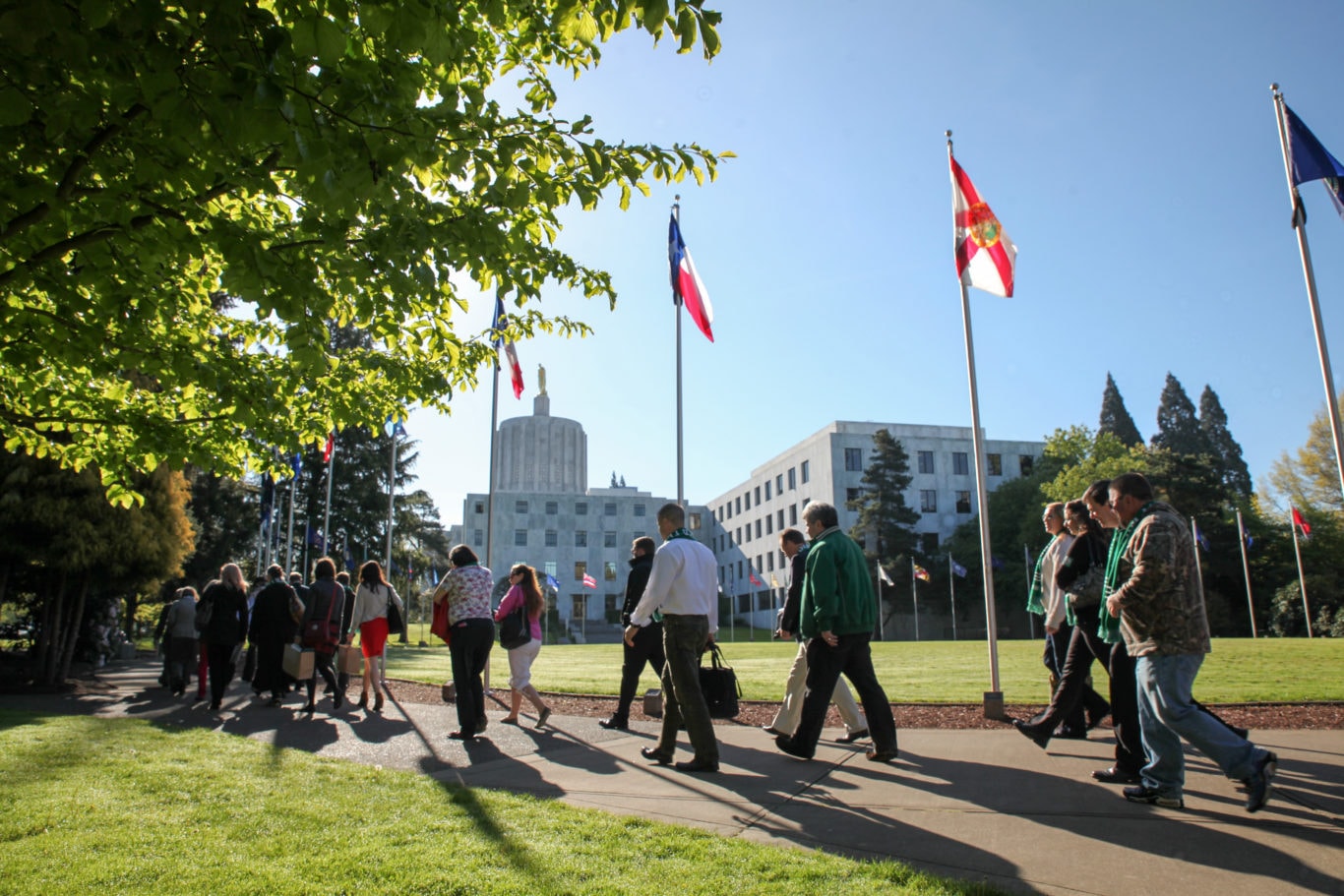Andrea Cisneros, Ontario, OROntario is a small town on the border of Oregon and Idaho. It’s about 50% Hispanic, but we don’t see Hispanic people involved in politics. I think people feel scared. They feel like they don't have rights. That could have been me. That was my family — living in fear, not able to stand up for themselves, not being able to have a voice. Those are my people, and they need somebody in their corner.
Policy Leadership Council: paving the way toward a future without hunger
Policy Leadership Council: paving the way toward a future without hunger
Food is at the core of our work because it’s essential to our daily lives. Our freedom, our health, our ability to thrive all depend on access to food that is nutritious and familiar.
Yet we know we can’t truly end hunger for good through food alone; we have to take action to prevent hunger from happening in the first place. This means we must address the policies and systems that drive hunger and poverty in our communities. And there’s no one better to name solutions to hunger than those of us who have experienced it first-hand.
That’s where the Oregon Food Bank Policy Leadership Council (PLC) comes in. Representing urban, rural and suburban communities from Adams to Grande Ronde, Ontario to Astoria, the 16-member statewide body brings an incredible depth of local leadership and lived experience to our shared vision for communities that never go hungry. And it’s these leaders who identify the best pathways to address hunger at its roots — through policy change in the legislature and at the ballot box.
David Soria Garcia, Tillamook, ORMy community includes farmworkers, DACA recipients, single parents and individuals without immigration status. A lot of people from Tillamook County, I notice they're scared of making their voices heard. They’re trying to make change, but they fear the government will do something to them if they speak up. But people in Tillamook County want to be heard.
“The Policy Leadership Council supports and makes even more meaningful the work that I do in my community and on a broader scale,” said West Kaufman (they/him) of Eugene. “Learning through the experiences of fellow Council members, we not only build solidarity in our statewide network, but also a more thorough understanding of both our challenges and the effectiveness of our solutions.”
In its first year of leadership, the Council put forward a bold agenda of key policy changes and investments to help our communities recover from the pandemic and begin to emerge stronger. These priorities recognize that the root causes of hunger are systemic: poverty, racism, sexism, classism and more. Because of this, the solutions must be systemic too.
Alongside allies and advocates across the state, the Council is paving the way toward a future without hunger. Together we’ve shortened the distance between those of us who experience hunger and the decisions that affect us. And our voices have already made a huge difference, helping to secure major anti-hunger policy and investment victories on:
affordable housing
access to transportation and early childhood education
funding for food assistance programs and infrastructure
improved pay and working conditions for essential workers in our food systems
stronger accountability measures in community safety
support for Oregonians who are immigrants and refugees, and
reworked harmful drug policies to invest in mental health and addiction services
Combined, our advocacy at the local, state and federal levels has helped us meet layered challenges head-on, no matter how big or small. And none of these exciting victories would be possible without the hard work and dedication of Policy Leadership Council members and community supporters throughout the state. Many of the policies and systems we’re working to change have been in place for generations — and it will take all of us to address these root causes of hunger. We hope everyone will learn more and get involved!
“I'm very happy to be part of the Policy Leadership Council, where it doesn’t matter what your immigration or social status is, or what your training is. We’re all equal and in it for a cause,” said Angelica Cortes Mejia (she/her/ella) of Portland. “It has been a significant learning experience…and served me so much spiritually, emotionally and physically to be part of this Council.”
